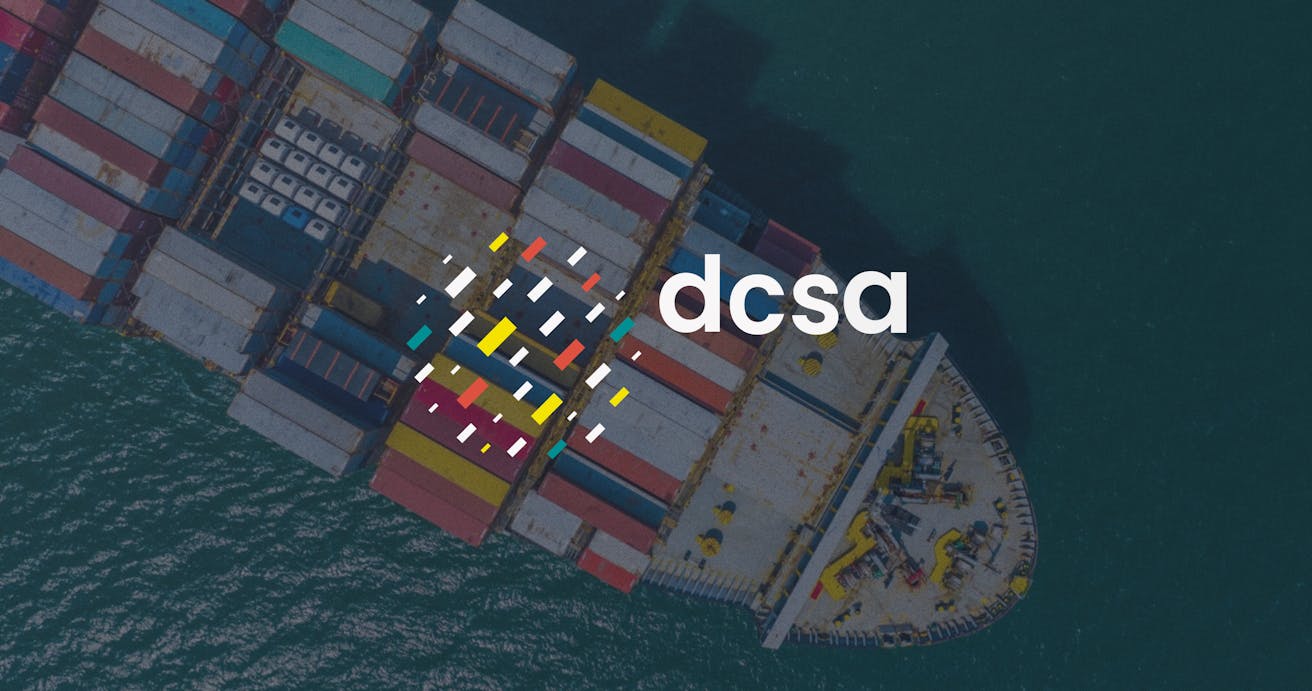
DCSA eDocumentation standardization initiative overview and achievements
The global shipping, supply chain, trade and trade finance industries have for long – far too long – relied on paper as the main medium for transferring possession of goods, communicating financial events, and concluding contracts and other types of agreements, as well as providing proof of certification and similar.
Finally, a new era has emerged – one of electronic documents, digital format and blockchain document transfer. Overall, we can describe it with the technical term eDocumentation, which is also the name of the initiative to standardise global trade document flows by the Digital Container Shipping Association (DCSA).
DCSA’s major effort in the past three years has been overall standardisation of end-to-end document processes, with detailed data models and provision of interconnectivity for various platforms, which can self-certify compliance to various standards.
DCSA foundational roadmap
The DCSA foundational roadmap elements for eDocumentation & industry collaboration include standardisation of the Bill of Lading (prepare & issue) process, B/L interface standards & API specs, standardisation of bylaws, electronic transfer of title, booking process, B/L clauses, certificates, platform interoperability, shipment release process, and the expansion of standards to other cargo, as well as propagating global MLETR adoption and banking collaboration in the initiatives.
The standards that have already been completed and released include:
Electronic bill of lading
Cyber security
Booking process
IoT gateway connectivity interface
IoT remote reefer container monitoring on board
Just-in-time port call
Load list and bay plan
Operational vessel schedules
Track & trace
Electronic B/L platform interoperability proof of concept
Among the most recent landmark achievements of the DCSA is the interoperability proof of concept, conducted with the support from ocean carriers, ExxonMobil, and various eBL platform providers – CargoX, edoxOnline, essDOCS and WAVE BL. The platform providers have committed themselves to implement the DCSA eBL interoperability standards to test eBL interoperability through the full bill of lading lifecycle using data that mirrors a live shipment.
Previously, DCSA has released standards for eBL data formats and interfaces. The eBL interoperability PoC leverages DCSA eBL Interoperability Standards 1.0 – Beta 1. Upon completion of the PoC, DCSA eBL Interoperability Standards 1.0 will be officially released and free to download for any platform provider to incorporate into their eBL solutions to ensure interoperability with DCSA standards-based eBLs. (Read more about the interoperability proof of concept here).
About DCSA and the FIT Alliance
DCSA is a neutral, non-profit group established to further the digitalisation of container shipping technology standards, in conjunction with its nine member carriers – MSC, Maersk, CMA CGM, Hapag-Lloyd, ONE, Evergreen, Yang Ming, HMM, and ZIM. DCSA’s mission is to be the de facto standards body for the industry, setting the technological foundation for interoperable IT solutions. Together with their member carriers, DCSA creates vendor-neutral, technology-agnostic, standards for IT and non-competitive business practices. By working towards the widespread adoption of these standards, their aim is to move the industry forward in terms of customer experience, efficiency, collaboration, innovation and respect for the environment.
Uniting behind the mission to standardise the digitalisation of international trade, DCSA, BIMCO, FIATA, ICC and SWIFT have formed the FIT Alliance. The FIT Alliance works to generate awareness about the importance of common and interoperable data standards and common legislative conditions across international jurisdictions and platforms. The aim is to facilitate acceptance and adoption of an eBL by regulators, banks and insurers and to unify communication between these organisations and customers, physical and contractual carriers, and all other stakeholders involved in an international trade transaction.
Read more: